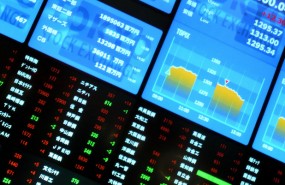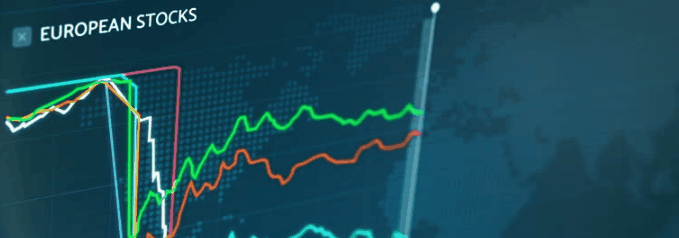
The European stock exchanges have deflated after Wall Street fell this afternoon red numbers. Macro data were worse than expected on both sides of the Atlantic and the minutes of the central banks have finished dragging the indexes of the Old Continent. And that, with the sights set on Jackson Hole.
- 11.473,900
- 0,33%
The Ibex, which had been unmarked with significant increases, has closed with a timid rise thanks to banking (+ 0.17%) and has maintained the 8,700 points. While the rest of the selective has finished in red (Cac: -0.8%; Ftse 100: -1.1%; Ftse Mib: + 0.13%; Dax -0.4%).
When it seemed that the waters were somewhat calmer, the new investment (although brief) of the rate curve in the US on Wednesday, after the publication of the Federal Reserve (Fed) acts, has triggered recession alarms again. While the ECB warns that the signs of economic slowdown are clear and that even growth will be even weaker than previously thought
While Germany's PMI data has been worse than expected. Investors expect more anxious than ever that central bankers give new clues in Jackson Hole.
In the Ibex, the values have been gradually turning red, although the bank has maintained its rebound and HSBC has reduced the price. Although the best value of the selective has been Mediaset (+ 3.55%). On the opposite side, mention Cellnex falls (-2.4%).
Eurozone PMI data has confirmed that the economic slowdown continues. In fact, in Germany the data brings again threats of economic contraction.
Meanwhile, investors have known the proceedings of the European Central Bank (ECB). The institution warns that the signs of economic slowdown are clear and that even growth will be even weaker than previously thought. And the agency believes that the best way to combat it may be a fresh set of measures. The next meeting will take place on September 12.
Now, the Fed and the ECB arrive at Jackson Hole, which is held every year in Wyoming, more pressured than ever. The market expects their announcement for the deadlines for the declines in rates that are already discarded and that also reports on other measures to sustain the economy.
THE RATE CURVE, AGAIN ...
The situation is delicate. The rate curve between US 2 and 10 year bonds reverted again this Wednesday, the second time in two weeks. It was first flattened, and then briefly reversed after the publication of the minutes of the last Fed meeting IN July.
Experts had already warned that these documents, and the positions reflected in them by the members of the Open Market Committee (FOMC) - were eager to reiterate that the last rate cut was a mid-cycle adjustment, which caused the fear that the Federal Reserve did not act aggressively enough - would be totally out of date, taking into account what happened in recent days. And yet it affected the market.
The reversal of the rate curve is an anomaly that assumes that the Treasury pays more for short-term debt than for long-term debt, and that many interpret as a sign to expect a possible recession, which usually occurs 22 months later. With this scenario, pressures on central banks do not stop increasing. Especially to the Fed, from the president of the United States, Donald Trump.
The lastest attack that the Republican has thrown at Jerome Powell has been to compare the interests of Germany's bonds with those of the United States to pressure the Fed with a drop in rates. Therefore, investors in Jackson Hole will look for any hint of new stimuli, especially in the figure of Powell, who will speak this Friday (the appointment is held between August 22 and 24).
And returning to Europe, Brexit is once again in the spotlight. This Wednesday, German Chancellor Angela Merkel met with British Prime Minister Boris Johnson, who asked her to renegotiate the Brexit agreement to eliminate the safeguard of the Irish border. The German leader urged him to present a new proposal to Brussels within 30 days, although in the EU they do not seem willing to negotiate the terms of the agreement. Johnson, meanwhile, insists that the United Kingdom will leave the European on October 31. This Thursday he has traveled to France to meet with President Emmanuel Macron., Who has not shown himself as indulgent as Merkel. In fact, the French leader has made it clear that the safeguard for Ireland is indispensable for the single market.
In addition, Italian politics remains in the spotlight after the main Italian opposition party, the Democratic Party (PD), has confirmed that it is willing to hold talks with the 5 Star Movement (M5S) for the formation of an alternative government after the collapse of the previous M5S populist coalition the Northern League. Today President Sergio Mattarella continues with the round of contacts.
This Thursday the Asian stock exchanges have closed with moderate earnings due to doubts about the Fed and after the Japanese manufacturing activity contracted for the fourth consecutive month. The Hang Seng index in Hong Kong has led the losses at the end of the session with a 0.98% decline.
Noticias relacionadas

La Fed y el BCE llegan a Jackson Hole bajo máxima presión para que bajen tipos
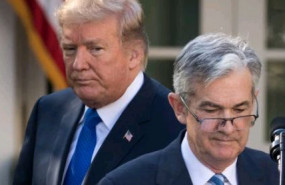
Trump compara los intereses de bonos de Alemania y EEUU para presionar a la Fed
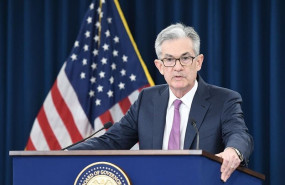
La Fed ve el recorte de tipos de julio como una "recalibración" de la política monetaria
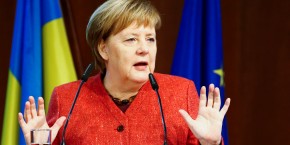
Merkel da 30 días a Johnson para que prepare su propuesta para el Brexit
